what the heck is indie film anyway??
a deep-dive conversation hopefully ending with a new, more defined relationship
as a follow-up to my last post, identity crisis: a personal essay on american film, I would like to narrow down “american film” to the many facets of indie. I think before you can “fix” things, it’s necessary to define them because much like the term “american film,” the genre of “independent film” can get lost in vague translation.
I had the immense pleasure yesterday of reading
’s latest post, How to Shake the World Alive with Independent Art During Dystopia in which she takes her readers on a walk to talk about the new world we can build with our art - a world in which we reframe our mind so that the basis of this new world is our art. a world in which we are dreamer, scout, collaborator, craftsperson, visionary all at different times in the building process. I know that could have been an exhausting perspective shift for many - or at least exhausting to think about all the hats you have to wear during construction - so today I invite you to sit down, relax, and have a coffee with me (preferably at your local cafe which is always the best place for conversation.)i’m very excited to have this talk with you so let’s dig right in.
words are one of my favorite subjects. as a kid I used to sit inside them for hours deciphering the hidden meanings the author might be trying to tell me. was I a lonely kid? sure. did words offer the kind of refuge most people try to find in people. well, maybe. but I definitely lived in a town no one really left so words provided my transportation out of the confines and into the vast expanse of the world. they have been my trusted companion my whole life. even if I didn’t trust the person speaking them I trusted that the spoken word and I would come to some sort of understanding. it wasn’t the words fault it was being misused. in fact, I’ve watched many a people wield them as weapons (for instance, not all i love you’s are the same - some are chains, some vague aspirations or forced pleasantry, while others still are the thing that makes one take flight.)
Words are the most powerful thing in the universe... Words are containers. They contain faith, or fear, and they produce after their kind. —Charles Capps
this is all to say, as a lifelong lover of words, and a former maestro of toxic situationships, I feel particularly qualified to have this conversation with you. this conversation in which we define indie. cause here’s the thing - sometimes we don’t want to look behind the curtain to see who runs oz. sometimes we don’t want to realize what we thought was cinema’s paradise was just a bunch of flammable studios, offices, and parking garages. and sometimes are dreams can die with the buildings that once housed them (if we’re not careful.)
too deep, too quickly? okay let’s take a step back and try this analogy on for size.
sometimes we don’t want to ask the guy, who has yet to take us on a date in public, as we’re sitting on the couch watching netflix for the 4th month in a row how he might feel about us as a “we”. but dear reader that is exactly what we, independent filmmakers, are in - a relationship that we have yet to define - (for ourselves and our future.) a relationship with an industry that has probably chewed us up and spit us out on more than one occasion (if it let us in at all.) but look at us going back to that same couch, that same dang t.v. screen, and that same dang guy who refuses to talk about us.
so let’s go ahead and define some things shall we?
what qualifies something as an independent film?
a few things that come to mind might be: small budget, outside the studio system, lack of mainstream audience appeal, sundance or sxsw festival circuitry, artistic or experimental, niche, obscure, weird, a hobby, passion project or a calling card until hollywood calls and we can make “actual movies.”
indie films are kind of like that drawer in the kitchen where you just stuff everything you don’t know where else to put. a catch-all word for whatever exists outside the mainstream hollywood studio (eco)system. “eco” not in terms of environmental-friendly (let’s be real) but in terms of self-enclosed.
growing up, we called this drawer, the junk drawer, and its main purpose was being the holding place until you had the mental clarity to finally bite the bullet and throw the items away or file them into a more proper place. I don’t believe anyone in my house had any idea as to what the inventory of the drawer’s contents actually were. I believe the same is true for the word, independent film. BUT I also believe once we open this huge container of a word, we’ll be able to have a lot more clarity on not only the current state of “independent film” but where we go from here.
it’s time to sort through the junk drawer. it’s time to put things in their proper place so that we can get the right people attached to the right projects and watched by the audiences that will champion and support them and most importantly - be transformed by them.
it’s time to publicly define our relationship with independent film. it’s time to state what we want out of it. it’s time to define for ourselves what a successful career in it looks like and the ways in which we can build a community around our aspirations and vision.
and just like that talk you should probably have with the guy who thinks netflix and chill is a proper date - I can’t have it for you, (but unlike that guy I don’t think you and independent film should break up - just get on clearer terms.) but before we talk more in depth about that relationship let’s talk about that other guy who you think might be the ONE but has yet to call or text you back or even acknowledge you exist…
hollywood in theory and in reality:
what do you think of when you think of hollywood? is it highest production quality? the peak of film? the city of dreams? the best of the best - the crème de la crème?
what hollywood offered us all was the concept of excellence. exceptionalism. prestige. something to aspire to. to strive for. something that would make all our dreams come true and allow us to live rich, creatively fulfilled lives. a place of connecting with people who could connect you with other people. an opportunity to partner with studios who were financially able to equip, support, and distribute your vision or allow you to be a part of someone else’s. when we think of stability, financial freedom to create, more audience reach, we think of hollywood, right?
but is this still the reality of hollywood?
does everyone in hollywood still just want to make a “great film?” is this still the basis for that system? cause the films being released at the moment do not provide any evidence for this.
celebrities seem to be stuck in a system that has them believing people will only watch their films if they live a certain type of high-profile lifestyle and are constantly at the forefront of the audiences’ minds. which causes them to take on those questionable projects now with the promise that they’ll have creative, artistic freedom later. But the later seems to be pushed further and further into the distant future and as present times would have it, into no future at all.
and while we’re on the subject, what is a studio?
a physical location? the ultimate authority? the gatekeeper? the financier? the way to get the money? the distributor? the way to get your movie seen?
the vision of studios and artists have never been more ill-aligned, but do the studios really have the authority any more? (especially to be telling the kinds of stories this country is in desperate need of) can you tell the stories to wake people up when you’re in bed with the things that put us to sleep in the first place?
two recent develops that decentralized the power of the “studio:”
distribution access and funding.
Everything Filmmakers Must Know About Distribution Is Now Yours, for Free
The Distribution Playbook is a free resource that Seed&Spark created in collaboration with indie-film distributor and exhibition platform Kinema. It’s designed as a soup-to-nuts guide for questions as simple as “How do I get a publicist?,” “What does a budget look like?,” or “What the heck is AVOD,” through more detailed guides around social media marketing, crowdfunding, and self-distribution tactics. -Brian Welk, Indiewire
Former top exhibition sector lobbyists unveil digital marketplace to boost theatrical supply
the upcoming Attend platform is designed to allow filmmakers to connect their films directly to theatre owners and help with the logistics of booking.
the filmmakers who have come out in support of Attend said, “A modern, democratic, data-driven marketplace providing an efficient and effective way to distribute all genres of film directly to theatres and audiences is a vital need for our industry and art form. We look forward to using this important new tool for our work.
years ago, platforms like seed & spark and the more recent, wefunder have given indie filmmakers more accessible ways to fund their projects (and a more direct connection with their potential future audience members.)
[and as far as the question is hollywood telling the kind of stories this country needs, I’ll answer that with a quick story: a couple years ago I was waiting for the bus in sunny los angeles. a woman was on the phone with a hospital emergency room because her boyfriend got stabbed the night before in a mugging. after hanging up, she looked at me with a completely serious face and said “i wish the avengers would just come and save us already.” this is absolutely not the kind of stories we should be cultivating in this country - in fact this is how fascism sneaks (snuck?) in. we need cinema that empowers people, that challenges people’s preconceived ideas about the world, that paints the world anew. we do not need stories that force people on the sidelines while they wait for the actual “heroes” to come and save the day.]
the calvary isn’t coming, we are the calvary. and no one understand the importance and value of audiences more than independent filmmakers.
NOW, LET’S TALK ABOUT A GENRE OF INDIE THAT I THINK ADDS TO THE CONFUSION SURROUNDING THE IDEA OF INDEPEDENT FILM. LET’S CALL IT THE “HOLLYWOOD INDIE.”
is it indie? is it hollywood? is it hollywood posing as indie?
how would I define the hollywood indie? a film that has the weight and punch of a independent film script - a script most studios wouldn’t dare touch - paired with familiar faces you’ve already seen on the big screen - or even your phone screen.
did hollywood make this movie or did independent film? i think these kind of movies can further obscure our definition of what qualifies as an independent film.
[I also think films like this is what might be causing sundance’s current split personality between “marketable” films with hollywood starlets and films and documentaries that further the art of cinema (stories society NEEDS not has been condition to “want”) from people you have not formed a parasocial relationship with - yet.]
LADY BIRD, GRETA GERWIG
louise tutt from screen daily
While at Toronto International Film Festival promoting Maggie’s Plan in 2015, Gerwig met Saoirse Ronan, who was in town to support Brooklyn. She gave her the script to read with no further explanation. “I wanted the script to stand alone as a piece of writing,” Gerwig recalls. “Instead of over-explaining what it was, if I wanted a person to be in it, I would just give them the script and they would read it and hopefully have an experience that is as close to watching the movie as possible. I want the writing to be the thing that sells the script.”
With the help of Rudin and his producing partners Eli Bush and Evelyn O’Neill, Gerwig was able to secure her first choice for every role, including Laurie Metcalf and Tracy Letts as Lady Bird’s parents, Beanie Feldstein as her best friend Julie, and Lucas Hedges and rising star Timothée Chalamet as Lady Bird’s potential boyfriends.
While Ronan was on stage in New York, Gerwig gathered her cast together in the city as often as possible, encouraging those who couldn’t make it to swap numbers and hang out. “I wanted them to feel connected,” she says. “So much of acting is being unafraid to look silly. Because you have to look a bit silly.”
Two weeks before production in the summer of 2016, the director invited everyone to Los Angeles for rehearsals and to go through scenes at her apartment. “We would also do things like have dance parties because it’s a really good way to get to know each other and I wanted everyone to feel loose and free,” she smiles.
A decade of doing everything she possibly could on different film sets has given what Gerwig estimates to be the 10,000 hours of practice Malcolm Gladwell recommends to become world-class in any chosen field. “I was very lucky to work with directors who knew I wanted to direct and were really open to explaining their process to me, and to work with cinematographers who would show me how they were lighting a scene,” she explains. “To me it was the best film school that ever could have transpired.”
A WOMAN UNDER THE INFLUENCE, JOHN CASSAVETES
sven mikulec from cinephilia beyond
when Gena Rowlands, his wife, expressed her interest in appearing in a play about the difficulties that contemporary women had to face, John Cassavetes wrote a script so emotionally profound and exhausting Rowlands immediately understood it would be too much for her to perform it eight times a week. Cassavetes turned the play into a screenplay for the big screen, but A Woman Under the Influence was too much for Hollywood studios and producers to swallow. nobody wants to see a crazy, middle-aged dame, they said. luckily enough, both for Cassavetes and for all of us in the audience, the filmmaking couple had a lot of friends who fell in love with the powerful script and who were willing to chip in and even become a part of the project. Peter Falk provided half a million dollars of his own money just so he could watch his friend’s impressive vision turn into a movie. Cassavetes himself mortgaged his house. the crew consisted of both professionals and students from the American Film Institute, where the director worked as the first filmmaker in residence. Rowlands did her own hair and makeup, Cassavetes and Rowland’s mothers were cast—the budget was very limited, but the production had heart and guts, and one hell of a talent behind the camera.
even after completion Cassavetes’ trouble with the film was far from over. unable to find a distributor, he called theater owners himself, asking them to run the film. it was one of the very first cases where an independent film was distributed without the use of distributors or sub-distributors. it was Cassavetes’ passion project and he was prepared to do whatever it took to share it with the world. unexpected help came from Richard Dreyfuss, of all people. Appearing on The Mike Douglas Show with Peter Falk, he said he saw Cassavetes’ “incredible, disturbing, scary, brilliant, dark, sad, depressing movie” and after the experience “went home and vomited,” and people rushed to see what made the actor so sick. It’s hard to find better words to describe the rollercoaster of feelings you get when you watch it.
A Woman Under the Influence is intense, providing a portrayal of a working class family and the dynamics of family, marriage, sex and social interactions. it’s an exploration of a woman’s psychology written and filmed with much understanding and dedication. emotionally draining, Cassavetes’ film features brilliant performances from Rowlands and Falk, playing a married couple caught at a moment when their shaky world crumbles down. it offers no consolation, no resolution, no bright note before the credits. just like all of Cassavetes’ best work, it’s a vivid and chaotic slice of life that you feel continues naturally without us when the curtain is drawn.
in my opinion both these films were hugely successful even if only one of them made money and was considered a “box office hit.” BUT both required the connections of the screenwriters that had already been established in hollywood. (which is an essay for another time.) so what am I getting at with all these questions and dictionary breakdowns and possible confusion?? it’s this, aside from being movies made outside of hollywood, independent film is an idea, a counterculture mentality that says we don’t have to play by your rules in order to make the movies we want. while hollywood is both a system, that has become increasingly limited in its scope and ability to tell good stories i.e. make great films, and a concept that provided us with an aspiration for what american film could be. but as streaming services, crowdfunding, and the internet in general have caused a decentralization of studio systemic power, we need to realize for ourselves that we don’t need “hollywood” (the system) in order to be excellent. it was always just been the word (concept) we could hold onto in our striving to make great films.
independent filmmakers have more power than they realize right now and if we want to get to a future that is not run by monopoly men then we have to start TALKING and DEFINING the things that can get confusing or muddied in translation. we have to get on the same page not because we want to tell the same stories but because we want live in a world in which we get to tell stories at all.
so what is it independent film needs besides more specific, publicly understood definitions? what will unite us? a common, universally understood language. a shared vision of community and support. a place where we are equipped to navigate the increasingly toxic landscape of independent film in america. a place for creative control and profitability if only so we can make more movies. what is the story of independent film? what is the story WE (the filmmakers) want to tell? When we have the language to properly articulate a thing, we gain a power that cannot be taken from us. Words don’t have to just be weapons to manipulate, control, and abuse, but our toolkit in which to build a new world.
Listen, I’ll cut to the chase. The new world needs you. Not in a moralistic way. In a practical one.
Worlds are not built by one person alone. They’re built by many people inhabiting an agreed upon understanding of how this is gonna go. The new world can’t exist without your participation.
It’s one thing to stumble into a new world. It’s quite another to go there intentionally. And it’s time to be doing things on purpose.
- Courtney Romano, How to Shake the World Alive with Independent Art During Dystopia
gonna wrap up this conversation by leaving you with more questions: what are some of your favorite independent films and why? how did they make you feel? were they stories worth fighting for? worth traversing these muddied, treacherous waters? worth building a place where they are seen and subsequently discussed?
(feel free to answer in the comments below!)
thanks a billion for taking the time to read.
p.s. today I had the immense privilege of attending the future film coalition’s first “town hall meeting” and I highly recommend checking out the crucially monumental work they are doing right now.
Love,
Taylor


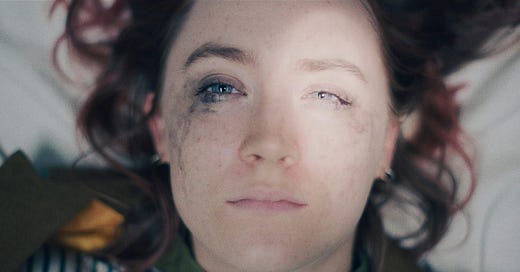





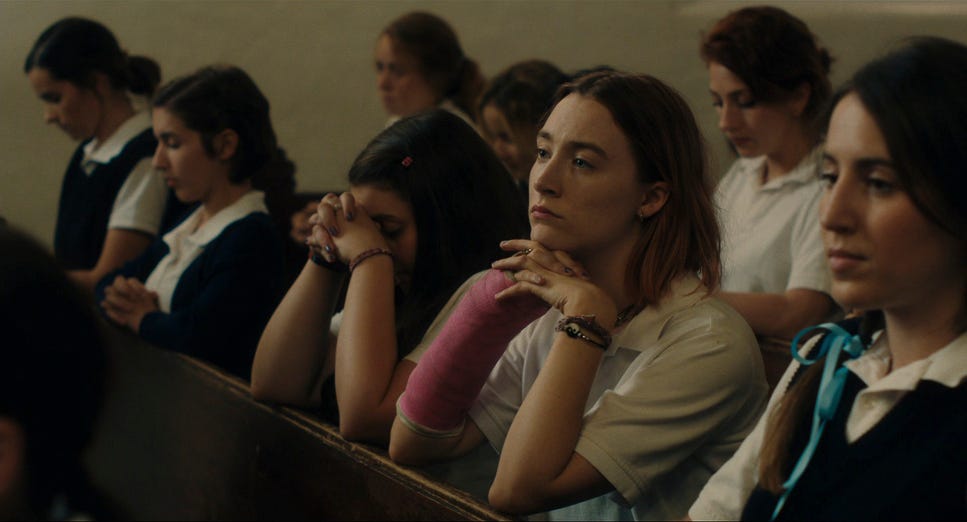
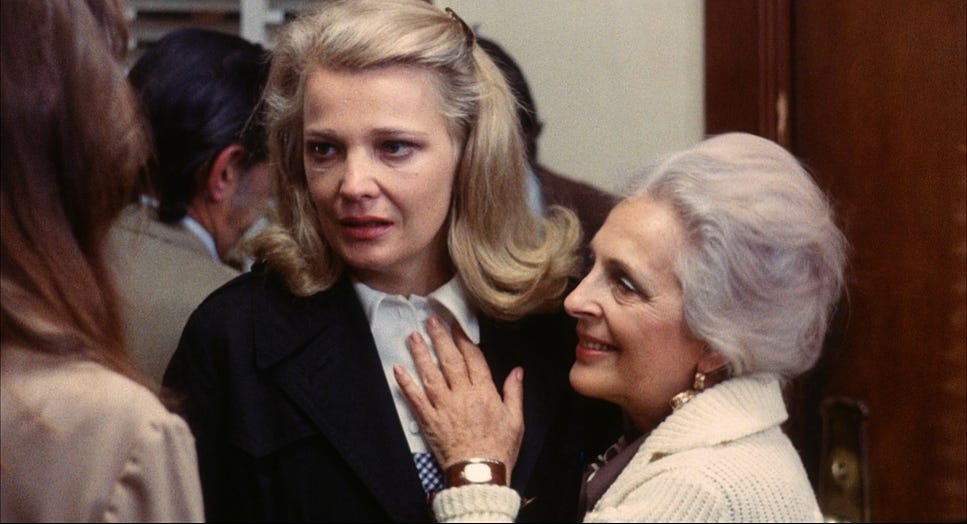
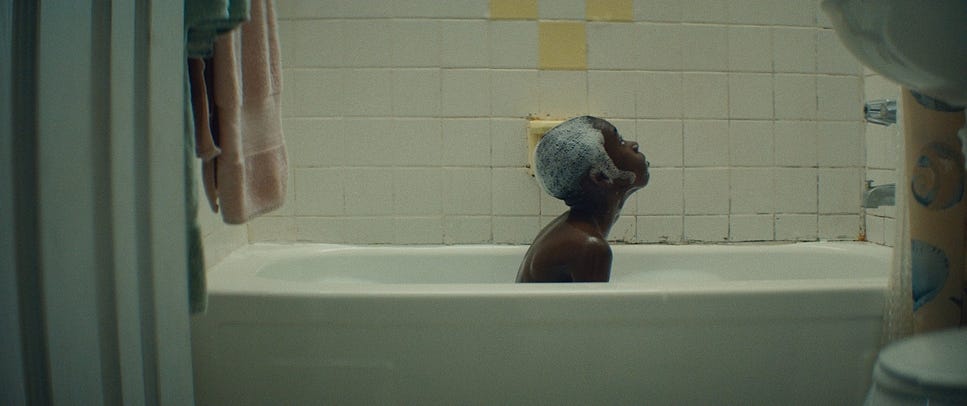
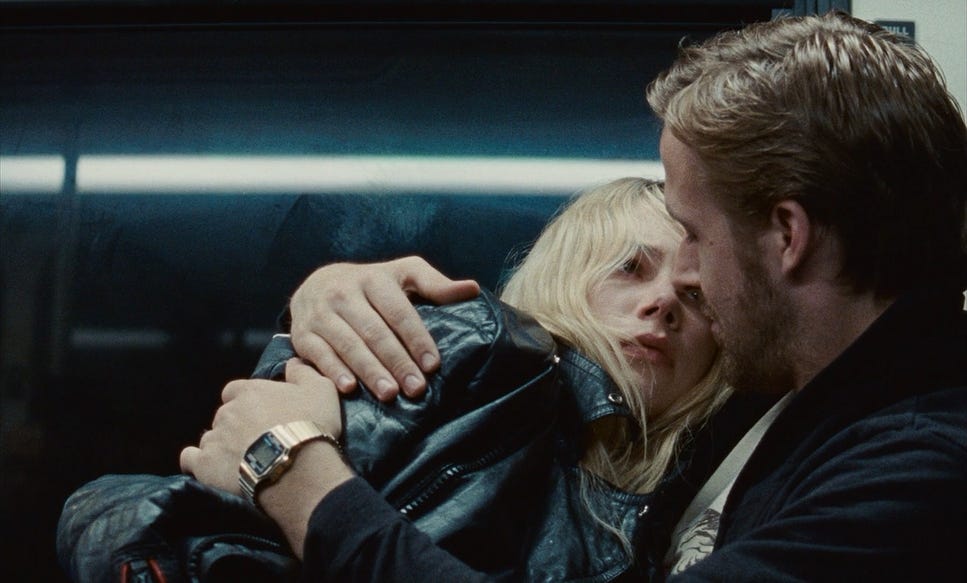
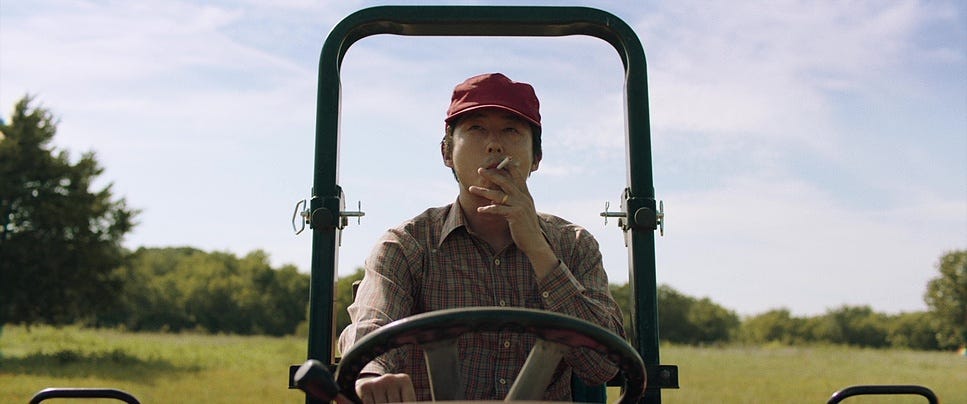
omg absolutely honored to be included in this essay! wow wow that means so much to me! thank you <3
you pose very interesting questions.... i feel like the "goal" of independent film, whether it's a hollywood indie or something i make with my friends on a saturday, is to articulate an alternative. maybe indie is even, implicitly, an affront to power!! idk, i have to think about that more haha.
but it does seem to me that indie naturally speaks to the tension between the powerful status quo and the sometimes disenfranchised, non-labelable, free spirit. and when indie film is done really well, it shakes off the inertia of just "going along with how things are" and allows us to imagine something else. and it does that both in its story & how it's distributed. the options might seem limited without a studio, but in actuality, they open up.
this might be word salad, but you've got me thinking -- thank you!! xx